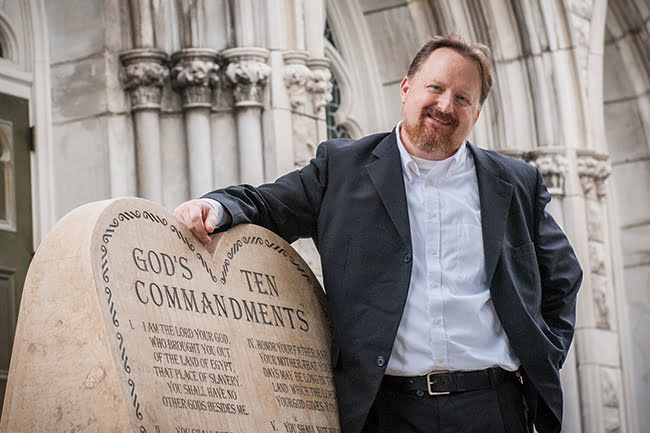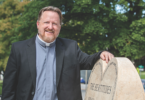by Bill Scholl
Our thoughts turn to All Saints and Souls as we enter November and anticipate Thanksgiving.
This holiday might bring to mind Native Americans feasting with Pilgrims. Yet we may forget that these celebrated, buckle-hatted pilgrims were Puritan colonists who criminalized all things Catholic, especially the celebration of Mass, which could bring the death penalty for the priest.
This is ironic since it was Squanto, a Native- American Catholic, who saved these virulent anti-Catholics from starvation by teaching them how to fish and grow corn. (Google it and share that story over turkey.)
As Catholics, we should be particularly mindful that sometimes governments of good people get it wrong and make crimes where none exist or punish misdeeds with undue severity.
On Nov. 13, at Savior Pastoral Center, the archdiocesan office for social justice and KC Common Good will host a dialogue on the criminalization of policy.
Criminalization is the process by which behaviors and individuals are transformed into crime and criminals. And it has been happening at an alarming rate.
To date, although the United States has only five percent of the world’s population, we have 25 percent of the world’s prison population.
Tragically, about one in every 100 U.S. adults is currently incarcerated, with the vast majority behind bars for nonviolent offenses.
Prison ain’t cheap and taxpayers must pay, on average, $30,000 per inmate. Many communities must cope with misdemeanor arrests that escalate into life-limiting events for the poor who can’t afford bail and lose their jobs over missing work.
Criminalization should not be considered only a liberal “bleeding heart” issue. Conservatives have noted that the federalization of everything has led to the rapid erosion of constitutional rights: due process, right to a speedy jury trial and protection from double jeopardy, to name a few.
Catholic teaching is clear: “In order to protect the common good, the lawful public authority must exercise the right and the duty to inflict punishments according to the seriousness of the crimes committed.
“The State has the twofold responsibility to discourage behavior that is harmful to human rights and the fundamental norms of civil life, and to repair, through the penal system, the disorder created by criminal activity.” (“Compendium of Social Doctrine of the Church,” 402)
Government should identify and punish criminals, but not in a way that ultimately does more harm than good for the community or targets minorities.
If you would like to join this discussion on crime and punishment and feel God may be giving you a part to play in bringing restorative justice to our legal system, please join me at Savior, 12601 Parallel Pkwy., Kansas City, Kansas, at 6:30 p.m. on Nov. 13. You can register by going online to: www.kccommongood.org.



